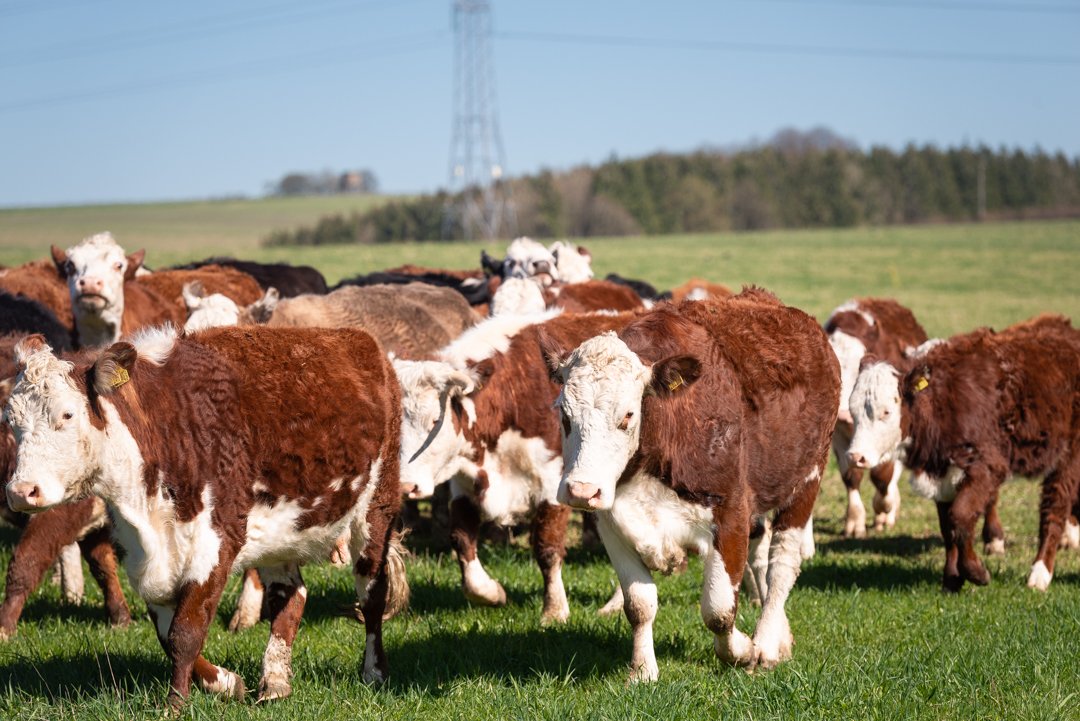Webinar: How adaptive grazing impacts livestock health and behaviour
In our latest webinar we are joined by Fernando Falomir from our mentoring partner Understanding Ag to discuss the positive effects that an adaptive grazing system can have on livestock health and behaviour.
Adaptive grazing, also called adaptive multi paddock grazing or regenerative grazing, involves high density grazing in smaller areas for shorter periods.
This allows plants time to recover, encouraging more growth, greater diversity and improved soil health.
As Fernando explains, it can also come with benefits for the health of your livestock, lower vet and med bills and reduced inputs.
You can watch the full webinar on how adaptive grazing impacts livestock above, which also includes discussion with Understanding Ag's Kyle Richardville, Jeremy Sweeten and Kent Solberg, alongside farm vet Lee-Anne Oliver from The Fold Farm Vets, in Hexham.
‘If it wasn't for regenerative practices, I wouldn't be here today.’
Fernando is a biogeochemist and fifth generation cattle farmer from Mexico, used to managing livestock in extremely dry conditions with average rainfall of only six to eight inches.
Despite this, adaptive grazing and other practices have enabled him to keep farming.
“If it wasn't for regenerative practices, I wouldn't be here today. Really, that's what helps us be more resilient,” he says.
Adaptive grazing is based on the application of the three rules of adaptive stewardship:
The rule of compounding
That every management decision creates a series of compounding and cascading effects, which can be positive or negative.
The rule of diversity
To encourage systems which are highly diverse in terms of soil microbial life, plant diversity, insects, wildlife and livestock.
The rule of disruption
To incorporate changes into the way the land is grazed, such as altering stocking densities, paddock configuration, time of rotations or rest periods.
“My animals rarely get sick. I never need to go and see a vet. My animals don’t need antibiotics. ”
“If you manage your grazing properly by giving ample recovery and grazing events, and you are promoting plant growth, eventually you're going to drive diversity forward,” says Fernando.
“That relationship between livestock and diversity will dictate if we have a healthy animal, or we have a degraded landscape that needs high inputs.
"A monoculture does not provide the nutritional requirements to promote livestock health. You're always going to see nutritional deficiencies in that grass.
“If we have healthy soil and we have healthy plants growing in that environment, inevitably, we're going to have very healthy cattle”
“The more diversity we have in our system, the better and the more efficient our nutrient cycling is. As you improve nutrient cycling in the soil, then you start freeing up nutrients that otherwise would have been tied up.
“My animals rarely get sick. I never need to go and see a vet. My animals don't need antibiotics.
"How we manage our pastures will dictate how healthy our soil is. If we have healthy soil and we have healthy plants growing in that environment, inevitably, we're going to have very healthy cattle.”
Learn about adaptive grazing at the Understanding Ag Soil Academy
Adaptive grazing will be just one topic covered at the Understanding Ag Soil Academy, which Regenerate Outcomes is hosting in May.
The academy will cover:
The six Principles of Soil Health and the three Rules of Adaptive Stewardship that drive the four Ecosystem Processes to build more resilient and profitable farms
How to improve field observational skills to build your soil health
How to integrate regenerative practices in the ever-changing world of government programmes and subsidies
In-field demonstrations including shovel tests and soil interpretation, observations of grazing management, slake tests and rainfall simulation
An introduction to the Soilmentor app that helps farms track their regenerative progress with creator Abby Rose
Join us at:

